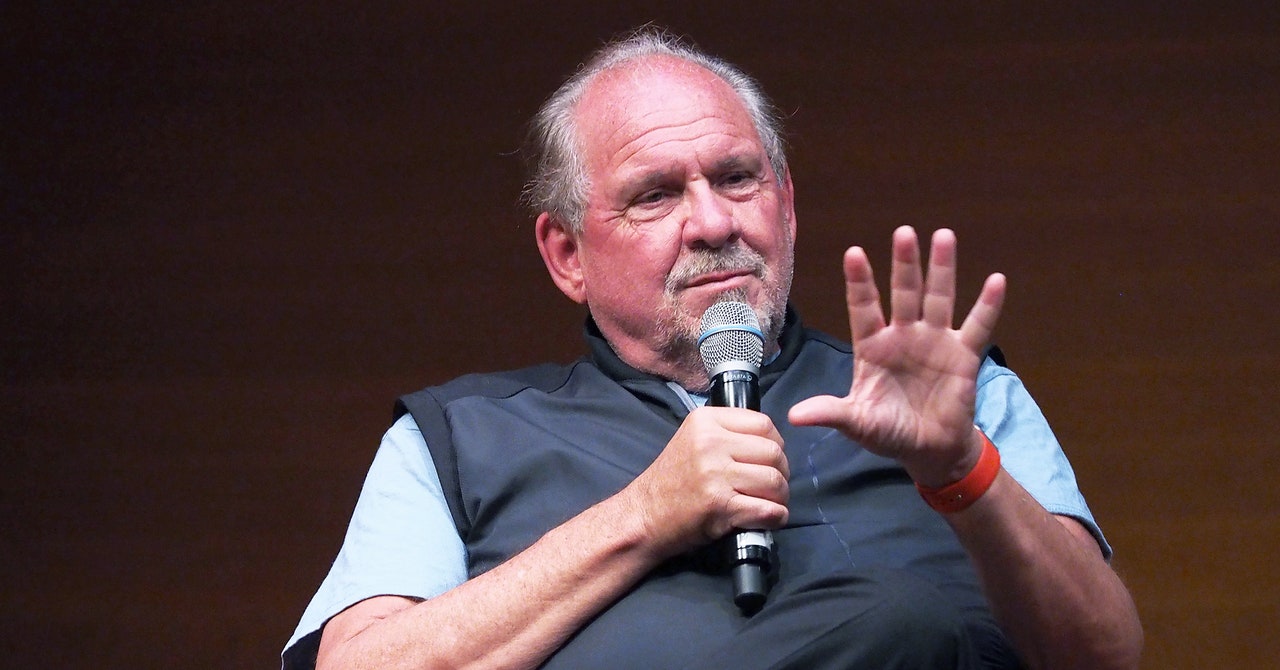It seems like a century ago that I first interviewed Larry Brilliant about the novel coronavirus. But it’s been just a little over three months since I spoke to then-75-year-old Brilliant, an epidemiologist who aided in the eradication of smallpox, and who for years has been warning the world of a pandemic that looks very much like the one we have now. (One of the tools in sounding the alarm was the movie Contagion, for which Brilliant was an adviser.) In that interview, he was able to provide clarity, gravity, and even a measure of hope to our unique and terrifying circumstances. The response was tremendous; it was the second-most-read story in the history of WIRED.
Brilliant’s vita includes roles with the World Health Organization, Google, and the Grateful Dead, but his life’s work has been anticipating and dealing with pandemics. (He is currently CEO of Pandefense Advisory, a team of experts assisting in responses to the coronavirus.) So it was vital that I return for a second conversation, to update what is both the biggest story of our time and the most baffling.
Brilliant reminded me that since our first conversation, he turned 76, an age, he notes, that provides unattractive odds should SARS-Cov-2, the virus that causes Covid-19, invade his cells. He wears masks, of course, and seldom ventures outside his Marin County, California, home. It was there that I reached him by phone to speak about the tragic course of the pandemic, what we’ve learned and haven’t learned, and how we still might be able to one day—eventually—recapture normality. I also learned about a possible curse of those who provided the science for Contagion. The interview has been edited for clarity and length.
WIRED: We talked 100 days ago. What is different about the pandemic now?
Larry Brilliant: A hundred days ago we didn’t really understand the pathophysiology—the way the virus and the human body interact, the illness as opposed to the epidemic. The unexpected things that it’s doing are not epidemiological—they are virological. In March, we were just beginning to see these horrific CT scans or x-rays of people with ARDS, acute respiratory distress syndrome, where they had these big circles of holes in their lungs, and we were thinking this is pretty much a respiratory disease. Since then we have learned that this virus attacks almost every organ in the body. The joke is that it’s from nose to toes, because you lose your sense of smell and you can get “Covid toes,” the swelling of your toes and your fingers that look like frostbite. There is still a lack of clarity on how it chooses entry points in the cells.
It seems like the longer it goes, the less we know about it. Every week something new comes up that contradicts what we thought we already knew.
No, no—you know a lot more about it now than you did three months ago. Yes, there are absolutely more questions today than there were 100 days ago. But part of that is because we’re getting more sophisticated in our ability to ask questions. Three months ago, we had only had a couple hundred cases of this novel virus. We have now got over 11 million cases, and a half a million deaths globally. The virus has been speeding along at an exponential speed, but so has science. So now we can begin to understand that this virus attacks the circulatory system, it attacks the vascular and nervous systems, it attacks the respiratory system, it attacks our ability to bring in oxygen. That’s why people can go to the hospital and be on their phone, not in any respiratory distress, but have oxygen saturation in the 50s, which in the old days we’d think of as you’re near death. It also makes you understand why you can get these Covid toes, why you can lose your sense of taste or smell, why you can have a stroke. This virus attacks blood vessels, it creates blood clots. That is probably one of the reasons why it causes strokes. We have a very large number of deaths due to kidney failure, and we are having terrible results from the ventilators that we were so obsessed about early on, though lately it’s looking a little better, because we’ve learned more about how to use them for this disease. We have learned a tremendous amount about this virus, about how it infects people, how it kills, how it spreads, but the big surprise to me is the kind of pan-organ nature of its attack. It gives the lie to anybody who thought that a comparison with influenza was in the ballpark.
You paint quite a picture.
This is a big fucking deal. If I would not be excommunicated from the world of science, I would call this an evil virus, but I can’t do that because I can’t impugn motives to it. But if I could, I would call it that. It’s certainly pernicious. This is the worst pandemic in our lifetime. And it is the first time we have had a pandemic in the United States in which we have had such a total, abysmal failure of our federal government.
Yet you say we’ve made progress. How much better are my odds of survival than they were three months ago?
Number one, you’re better off because you’re three months closer to a treatment or a prevention. Number two, the treatments are getting better, so the outcomes in hospitals are getting better. We already have convalescent plasma [with antibodies from recovered Covid-19 patients] that’s doing an amazing job. And number three, depending on where you live, by flattening the curve, it is far less likely that

